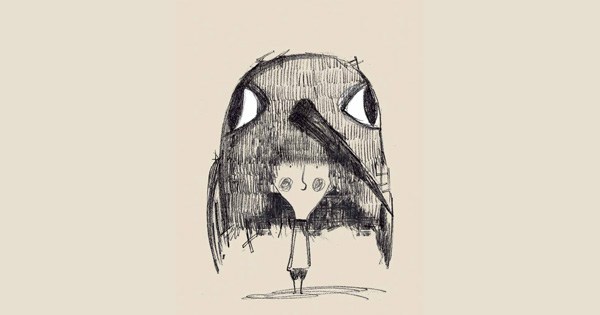A page from The Day I Became A Bird. an illustrated story about relationships and feelings. Ingrid Chabbert (Author). Raúl Nieto Guridi (Illustrator).
So I have a project where I practice talking with transparency and listening from the teller’s view. This is not easy.
I practice with a partner. We choose a topic (like this one), and begin with something that feels somewhere between silly and arduous: we describe.
Describe?
Yep. We say what we see. (Are you getting the oh-man-this-is-easy thought? Maybe let that go.)
To describe means slowing down and paying attention. Maybe silence the phone. Off switch it. (Tie it up and hide it?)
Marie Howe, a writing teacher at Sarah Lawrence College and poet laureate of New York, talks about how hard it is for students to describe. So hard that she assigns them a simple task for months: Write ten things that you see each day.
“Just tell me what you saw this morning in two lines…I saw a water glass on a brown table and the light came through it in three places. No metaphor… We want to say, ‘It was like this; it was like that.’” Howe says no, no, no. No abstractions. And then she ponders why it’s hard. ‘We want to look away. To be with a glass of water, to be with anything—and then [the students] say, ‘Well, there’s nothing important enough.’ And that’s the whole thing. The point. Because to describe means that you have to resist metaphor and actually endure the thing itself, which hurts us for some reason.”
When I describe, I have to be present with what I’m looking at. When I listen to my partner, I have to be present with the topic and the teller.
And that’s not the only challenge. There’s often a notion that I think you see what I do. (Maybe let that thought go, too.) Because we see things differently.
“People seem to believe that if what they are asked to describe is in front of you and them, then they think there is no need to say what they see because they wrongly assume that we all see the same things in the same way. We do not. We look at things differently, we notice different aspects, and we use different words when we tell about what we see (Terry Barrett, CRITS, Bloomsbury Publishing, London, 2018).
Describing becomes a foundation for being awake to what is happening, feeling heard, seeing anew, and a catalyst for connection. From my practice so far, I am going to say that’s a promise.
NOTES
Marie Howe’s quotes are from a marvelous On Being (Krista Tippet) podcast. (On Being, an interview, The Power of Words)


Leave a Reply